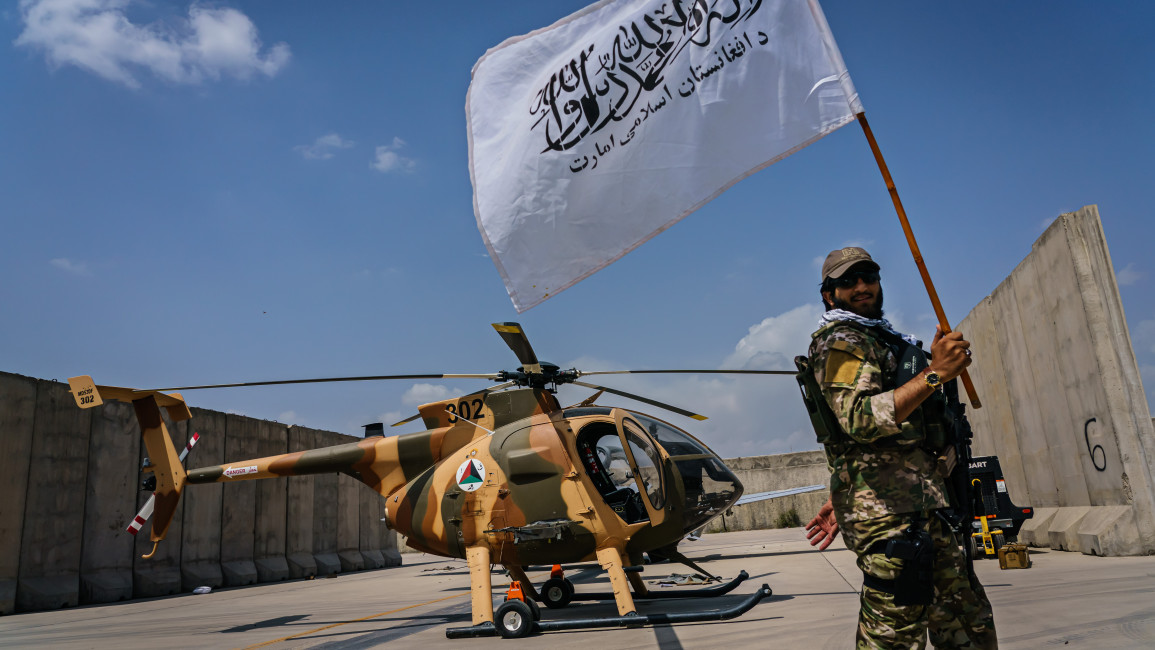
Deadly Pakistan strikes in Afghanistan reflect growing cross-border tensions

Pakistan conducted airstrikes this weekend in Afghanistan’s Khost and Kunar provinces in response to the Tehreek-e-Taliban Pakistan’s (TTP) spring offensive inside Pakistan.
As of this writing, the death toll reported by the Afghan Taliban was 45, including women and children, marking a worrisome escalation in cross-border violence between Pakistan and Taliban-led Afghanistan.
The TTP is a coalition of militant groups that in reporting is sometimes referred to interchangeably as the Pakistani Taliban. It took the international stage and became a steadfast enemy of the Pakistani state when the group attacked the Army Public School in Peshawar in December 2014.
This attack was a catalyst for Pakistani military operations such as Zarb-e-Azb and Operation Radd-ul-Fasaad in 2014 and 2017 respectively, which were successful in temporarily curbing militancy inside Pakistan.
"Relations between Pakistan and the Afghan Taliban have now hit a low point since the former refuses to rein in the Tehreek-e-Taliban Pakistan which is using Afghanistan as a base of operations"
However, in recent years the TTP has reabsorbed splinter terrorist groups into its ranks and is noticeably emboldened by the Afghan Taliban’s takeover of Afghanistan last summer, which it views as a model to be replicated.
At the end of March, the TTP killed six Pakistani soldiers in an attack on a Frontier Corps outpost just as it announced that its spring offensive “Operation Al-Badr” would occur during Ramadan. On the night of 11 April, Major Shujaat Hussain from the Special Services Group and Sepoy Imran Khan were killed fighting TTP in South Waziristan.
On 14 April, Pakistan’s Inter-Services Public Relations office announced that 97 Pakistani officers and soldiers were killed in the first three months of 2022 alone. On the same day, eight soldiers were killed in two incidents, including a TTP ambush that killed seven soldiers in North Waziristan.
Relations between Pakistan and the Afghan Taliban have now hit a low point since the former refuses to rein in the TTP which is using Afghanistan as a base of operations. The TTP is often distinguished from the Afghan Taliban, but the TTP views itself as a branch of the Afghan Taliban operating in Pakistan.
TTP leader Noor Wai Mehsud even pledged allegiance to the Afghan Taliban’s leadership. This stance isn’t new. In 2013, then TTP spokesman Ehsanullah Ehsan was reportedly removed from his position for suggesting the TTP was a distinct movement from the Afghan Taliban.
Today the Afghan Taliban themselves provide the TTP refuge and don’t appear willing or able to restrain the group’s actions against the Pakistani state.
Pakistan’s ambassador to Afghanistan was summoned by Taliban leaders after the strikes in Khost and Kunar and Taliban political office spokesperson Mohammed Naeem publicly warned of bad consequences if more strikes were conducted. One prominent Taliban social media personality referred to Pakistan’s military as mercenaries of the United States.
Pakistan maintained relations with the Afghan Taliban throughout the US war in Afghanistan based on two fundamental calculations: (1) the United States would someday leave a fragile Afghan state behind that it may not continue to support; and (2) the Afghan Taliban wouldn’t bite the hand that intermittently fed it.
|
|
The first assumption turned out to be correct, while the latter proved false. The Afghan Taliban view the TTP not only as partners - even ideological brothers - but as leverage over Pakistan.
Pakistan’s past negotiations with the TTP have rarely produced long-lasting results, and it may only be a matter of time before the TTP begins to conduct major attacks in more settled areas of Khyber Pakhtunkhwa and major Pakistani cities.
Pakistan’s security forces will now have to contend with an emboldened TTP on top of IS-K and Baloch separatist groups.
Many observers in Washington have collectively shrugged off TTP’s offensive as just desserts for a Pakistani security establishment that refused to fully cut off the Taliban.
"Pakistan's security forces will now have to contend with an emboldened TTP on top of IS-K and Baloch separatist groups"
The belief that Pakistan played a duplicitous double game during Washington’s war in Afghanistan is nearly axiomatic in Washington. In Islamabad, Pakistan is understood as a victim of Washington’s War on Terror caught between a rock and a hard place. Both are simplistic and self-serving explanations.
Pakistan declined to double down on Washington’s war with the Afghan Taliban and instead provided significant aid to the latter. What could have been — if Pakistan had fully bought into Washington’s counterinsurgency against the Taliban — is a counterfactual that will be the subject of doctoral dissertations and revisionist historical accounts for years to come.
But Washington also refused to hear Pakistan’s warnings about the weaknesses of the Afghan state it was building and its institutions —particularly the Afghan security forces.
Even Pakistan’s biggest critics would admit that the fragility of these institutions was primarily the result of internal dynamics. Pakistan and the United States were also rarely aligned in their strategy against militants and often counteracted one another.
When former Army Chief Pervez Ashfaq Kayani allegedly asked Washington to focus on Eastern Afghanistan in tandem with a Pakistani campaign across the border, Washington instead focused on the south.
Short-term priorities rarely overlapped and there was no shared long-term vision for Afghanistan. Pakistan became comfortable with the manageably off-balance equilibrium of gradual Taliban advances and a continued US presence. That status quo came crashing to the ground when the US withdrew in August.
Washington was ultimately able to extricate itself from the quagmire of the war in Afghanistan last summer but the region cannot.
This reality fueled Pakistan’s hedged bet of supporting the United States and the Afghan Taliban to varying degrees at different times.
The price of this gamble is an Afghanistan led by ideologues with newfound hubris. But Pakistan’s security establishment may well view this as an outcome that would have occurred regardless, and perhaps even a preferable one to the alternatives.
Now Pakistan’s war on terror is far from over and its relation with the Afghan Taliban will only get worse. How Pakistan and the Afghan Taliban choose to proceed will have dire consequences for the lives of Afghans and Pakistanis alike.
Pakistan’s war on terror features all the contradictions and complexities that haunted Washington’s war in Afghanistan, but it is fighting it at home.
Adam Weinstein is a Research Fellow at the Quincy Institute.
Follow him on Twitter: @AdamNoahWho
This article originally appeared on Responsible Statecraft.



